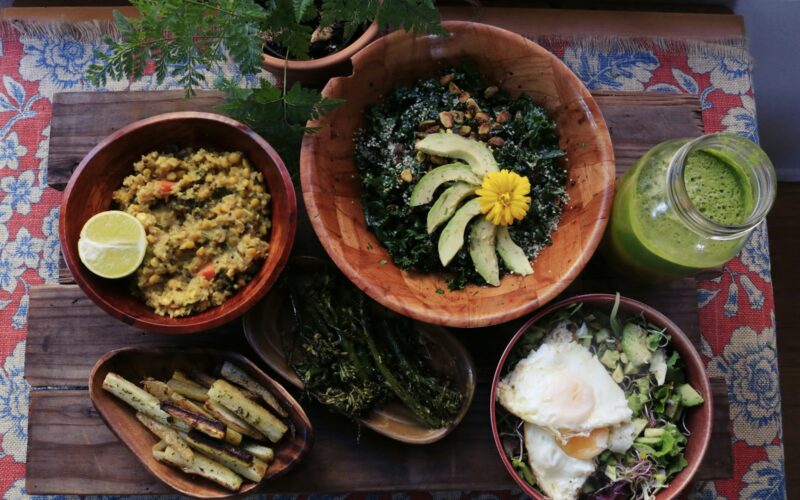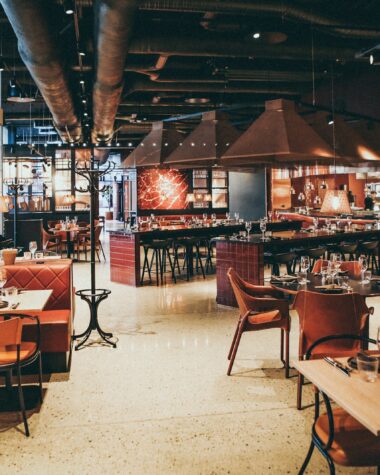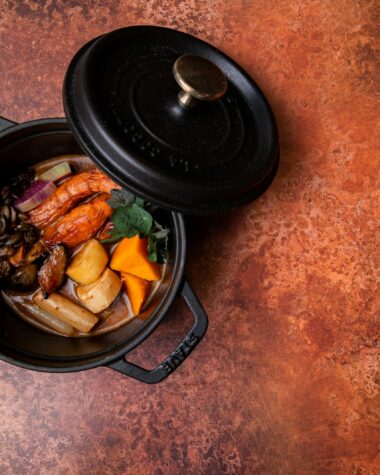Over the past decade, plant-based cuisine has gone from a niche trend to a global movement, transforming menus, supermarkets, and even entire culinary cultures. In 2025, the shift is undeniable: restaurants across cities are offering plant-based options that rival traditional dishes in taste, creativity, and presentation. But this movement is about more than just food—it reflects changing values, sustainability, health awareness, and the way we experience eating altogether.
The rise of plant-based cuisine is not limited to vegetarians or vegans. It’s attracting curious food lovers, health-conscious diners, and even traditional meat-eaters who are exploring ways to diversify their plates. In many ways, 2025 marks the point where plant-based cooking moves beyond labels and becomes a standard of modern culinary innovation.
1. Plant-Based Cuisine: Beyond Tofu and Salad
Innovative Ingredients
Plant-based food in 2025 is no longer defined by simple swaps like tofu or tempeh. Chefs are experimenting with jackfruit as a meat alternative, using mushrooms to replicate umami depth, and leveraging legumes in creative textures—from lentil meatballs to chickpea-based ice creams.
The Flavor Revolution
Flavor is no longer a compromise. Innovative techniques like fermentation, roasting, and spice layering allow plant-based dishes to be as bold, rich, and complex as any traditional dish. A plant-based curry or pasta can surprise diners with its depth of taste, leaving them craving more.
2. Health as a Driving Force
Nutrient-Rich Plates
Consumers in 2025 are more informed than ever about nutrition. Plant-based cuisine emphasizes whole grains, legumes, fruits, vegetables, and nuts, providing fiber, protein, and micronutrients while reducing saturated fats commonly found in meat-heavy meals.
Preventive Health Benefits
Medical studies continue to highlight the connection between plant-based diets and reduced risk of chronic diseases, including heart disease and diabetes. Restaurants are responding by offering dishes that are not only delicious but also designed to support long-term wellbeing.
3. Environmental Sustainability
A Culinary Response to Climate Change
The environmental impact of food production is increasingly in the public eye. Plant-based cuisine requires fewer resources than traditional animal-based dishes, including water, land, and energy. By 2025, many chefs are framing menus around sustainability, with plant-forward dishes designed to minimize waste and carbon footprint.
Local Sourcing and Seasonal Menus
Sustainable eating isn’t only about the ingredients themselves but also how they’re sourced. Plant-based restaurants often rely on local farms, seasonal produce, and minimal packaging, reflecting an ethos that values the planet alongside taste.
4. Global Influence and Cultural Fusion
Blending Traditions
Plant-based cuisine in 2025 isn’t confined to a single culture. Chefs are combining traditional recipes with modern plant-forward techniques. For example, Moroccan tagines are recreated with lentils and roasted vegetables, while classic Italian risottos are enriched with seasonal mushrooms instead of meat.
Celebrating Regional Ingredients
Across the world, chefs are spotlighting local plant-based ingredients, from African grains like teff and millet to Asian fermented vegetables. This approach connects diners with regional traditions while offering a new perspective on familiar dishes.
5. The Technology Behind Plant-Based Food
Lab-Grown Innovations
Although not widely available everywhere, lab-grown plant-based proteins are gaining attention. By 2025, these alternatives provide sustainable options with textures and flavors closely resembling animal products, expanding culinary possibilities without compromising ethics or nutrition.
Kitchen Techniques for Creativity
Modern kitchens are employing techniques such as dehydrating, smoking, and molecular gastronomy to elevate plant-based dishes. Chefs are creating textures that mimic meat, cheeses, and creamy sauces without relying on animal products.
6. Plant-Based Dining Experiences
Fine Dining Goes Green
High-end restaurants now showcase plant-based tasting menus that rival the complexity of traditional haute cuisine. Multiple courses highlight creativity, storytelling, and plating artistry, proving that plant-based dining is not just healthy but an experience in itself.
Casual and Street Eats
Beyond fine dining, street food, fast-casual eateries, and family restaurants are incorporating plant-forward options. From chickpea shawarma wraps to jackfruit tacos, plant-based dishes are increasingly accessible and convenient.
7. What NOT to Assume About Plant-Based Cuisine
It’s Not Just for Vegans
Many diners mistakenly assume plant-based cuisine is only for vegans or vegetarians. In reality, it appeals to a broad audience, from flexitarians to health-conscious families, and even adventurous eaters seeking new flavors.
It’s Not Flavorless or Simple
Another misconception is that plant-based food lacks richness or creativity. Chefs in 2025 are proving that plant-forward dishes can be deeply satisfying, layered, and inventive, often outshining traditional meat-based dishes in taste.
8. The Role of Social Media and Food Culture
Sharing Plant-Based Creations
Social media plays a significant role in the rise of plant-based cuisine. Platforms like Instagram and TikTok showcase visually stunning dishes, making plant-based dining aspirational and approachable at the same time.
Influence on Home Cooking
The visibility of plant-based meals encourages home cooks to experiment, creating a ripple effect that extends beyond restaurants and into everyday kitchens. Recipes shared online introduce people to ingredients and combinations they might never have considered.
9. Plant-Based Cuisine as a Lifestyle Choice
Ethical Considerations
For many, plant-based eating aligns with values beyond health, including animal welfare and ethical consumption. This holistic perspective makes it a lifestyle choice rather than a temporary diet.
Integration Into Daily Life
By 2025, plant-based cuisine is integrated into regular meals, family gatherings, and celebrations. It’s not an occasional experiment but a sustainable, flexible way to eat.
10. Looking Ahead: The Future of Plant-Based Cuisine
Continued Innovation
Plant-based cuisine will continue evolving, with new ingredients, techniques, and flavor profiles emerging. Expect more immersive dining experiences, fusion menus, and creative adaptations of traditional dishes.
Changing the Culinary Landscape
The rise of plant-based cuisine in 2025 signals a permanent shift in how people eat, cook, and think about food. It’s not a fad—it’s a reflection of broader cultural, environmental, and health-conscious movements shaping global cuisine.
Conclusion
Plant-based cuisine in 2025 represents more than a dietary preference. It embodies innovation, sustainability, health, and cultural exploration. From fine dining to street eats, from lab-grown proteins to traditional legumes, plant-forward dishes are transforming the culinary landscape.
For diners, it offers flavor, creativity, and the satisfaction of knowing that each meal supports a healthier body and planet. The rise of plant-based cuisine is not just about what we eat—it’s about how we think about food, culture, and our place in a world where every choice matters.








